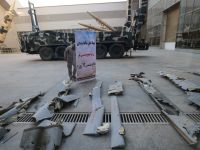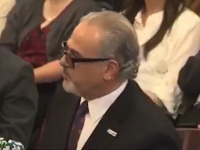With the start of the summer vacation, many Saudi families have packed up in order to spend some time abroad to rest and for entertainment.
Young Saudis sometimes prefer to travel with their friends rather than accompany their families. While this ensures their personal freedom, it might also cause them trouble or make them commit fatal mistakes. They might fall prey to organized gangs.
In extreme cases, these gangs could steal their money by making them drug addicts and womanizers, or have them rebel against their country. There are many ways of misguiding young and lonely Saudis who travel without knowing what lies ahead for them abroad.
Arab News spoke to a number of young Saudis about their experiences abroad. One of them, who preferred anonymity so as not to embarrass his family, told a painful story: “My friends convinced me to travel with them instead of my family. They told me that my family would carefully watch all my moves and would not allow me to enjoy myself. I liked the idea, despite opposition from my family. We traveled to a European country where I saw all kinds of irresistible temptations — nightclubs, casinos, theaters, bars, and the streets.”
The things he liked most was that he could smoke freely, drink and go out with girls without anyone harassing him. “I committed a number of un-Islamic acts that I have not tried before in my own country. I spent all my money on illegal pleasures and had to borrow from my friends and ask my family back home for more money. I liked the experience and wanted to repeat it the following year.”
However, the price was too high — he tested HIV positive. “I regretted my outside travels and wished that I had listened to my father, who always asked me not to travel alone or in the company of bad friends. I am left alone now, just waiting in my room for my death, which is not far away.”
Khaled Abdullah Al-Qahtani, another young Saudi, said he refused to listen to his family and traveled abroad with his friends.
“In a European country I had alcohol for the first time. I even smoked hashish and tried all kinds of drugs that we got from one of the girls from that country. She was working for a dangerous gang, involved in drug trafficking and prostitution. The drugs and women depleted my money fast. I was obliged to borrow drugs from the gang after promising to give them the money in a week when I received it from my father. Unfortunately, for some reasons my father was unable to send me money. The gang confiscated my passport and all my belongings so that I could not escape. I had no choice but to take my case to the Saudi Embassy, which returned me to the Kingdom safe and sound, but as a drug addict. I had to go to Al-Amal Hospital for Rehabilitation. I took a solemn oath never to travel abroad without my family.”
Saudi national Abdullah Al-Otaibi’s only son traveled with his friends to an Arab country to spend the summer vacation. “For two months, there was no news from him: His mobile was switched off. However, he suddenly came back, but as a different man. He became more religious and always wanted to be left alone. I only discovered what had happened to him when he was caught by security forces on charges of plotting to execute a terrorist operation.”
Commenting on these experiences, sociologist Faiz Abdullah Al-Hoshan of the College of Social Sciences at King Saud University said society is to blame largely for the mistakes committed by young Saudis when they travel abroad alone.
He pointed out that young Saudis without their families outside were easy targets for organized gangs and were liable to commit mistakes. “They are vulnerable because they are not immune against the hazards they may face outside,” he said.
Al-Hoshan said that social and religious enlightenment was the weapon we should arm our youths with. “We should not shy away from arming our young men and women with sexual, cultural and health awareness,” he said.
“We should increase the dose of social awareness through media, the Internet and other forums,” he added.
Al-Hoshan warned that the outside world looked at the young Saudis from a very narrow perspective, thinking they are only out for booze, drugs and women. This makes them an easy prey for organized gangs, he said.
By FATIMA AL-SAADI








